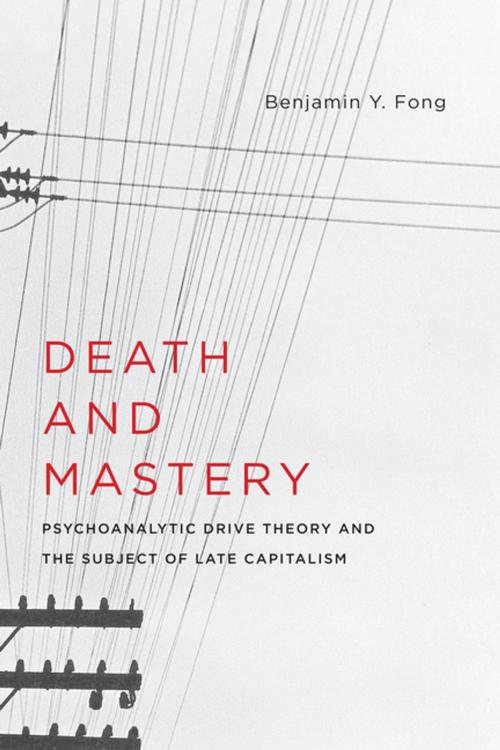Death and Mastery
Psychoanalytic Drive Theory and the Subject of Late Capitalism
Nonfiction, Religion & Spirituality, Reference, Psychology of Religion, Health & Well Being, Psychology, Psychoanalysis, Philosophy| Author: | Benjamin Fong | ISBN: | 9780231542616 |
| Publisher: | Columbia University Press | Publication: | November 8, 2016 |
| Imprint: | Columbia University Press | Language: | English |
| Author: | Benjamin Fong |
| ISBN: | 9780231542616 |
| Publisher: | Columbia University Press |
| Publication: | November 8, 2016 |
| Imprint: | Columbia University Press |
| Language: | English |
The first philosophers of the Frankfurt School famously turned to the psychoanalytic theories of Sigmund Freud to supplement their Marxist analyses of ideological subjectification. Since the collapse of their proposed "marriage of Marx and Freud," psychology and social theory have grown apart to the impoverishment of both. Returning to this union, Benjamin Y. Fong reconstructs the psychoanalytic "foundation stone" of critical theory in an effort to once again think together the possibility of psychic and social transformation.
Drawing on the work of Hans Loewald and Jacques Lacan, Fong complicates the famous antagonism between Eros and the death drive in reference to a third term: the woefully undertheorized drive to mastery. Rejuvenating Freudian metapsychology through the lens of this pivotal concept, he then provides fresh perspective on Theodor Adorno, Max Horkheimer, and Herbert Marcuse's critiques of psychic life under the influence of modern cultural and technological change. The result is a novel vision of critical theory that rearticulates the nature of subjection in late capitalism and renews an old project of resistance.
The first philosophers of the Frankfurt School famously turned to the psychoanalytic theories of Sigmund Freud to supplement their Marxist analyses of ideological subjectification. Since the collapse of their proposed "marriage of Marx and Freud," psychology and social theory have grown apart to the impoverishment of both. Returning to this union, Benjamin Y. Fong reconstructs the psychoanalytic "foundation stone" of critical theory in an effort to once again think together the possibility of psychic and social transformation.
Drawing on the work of Hans Loewald and Jacques Lacan, Fong complicates the famous antagonism between Eros and the death drive in reference to a third term: the woefully undertheorized drive to mastery. Rejuvenating Freudian metapsychology through the lens of this pivotal concept, he then provides fresh perspective on Theodor Adorno, Max Horkheimer, and Herbert Marcuse's critiques of psychic life under the influence of modern cultural and technological change. The result is a novel vision of critical theory that rearticulates the nature of subjection in late capitalism and renews an old project of resistance.















